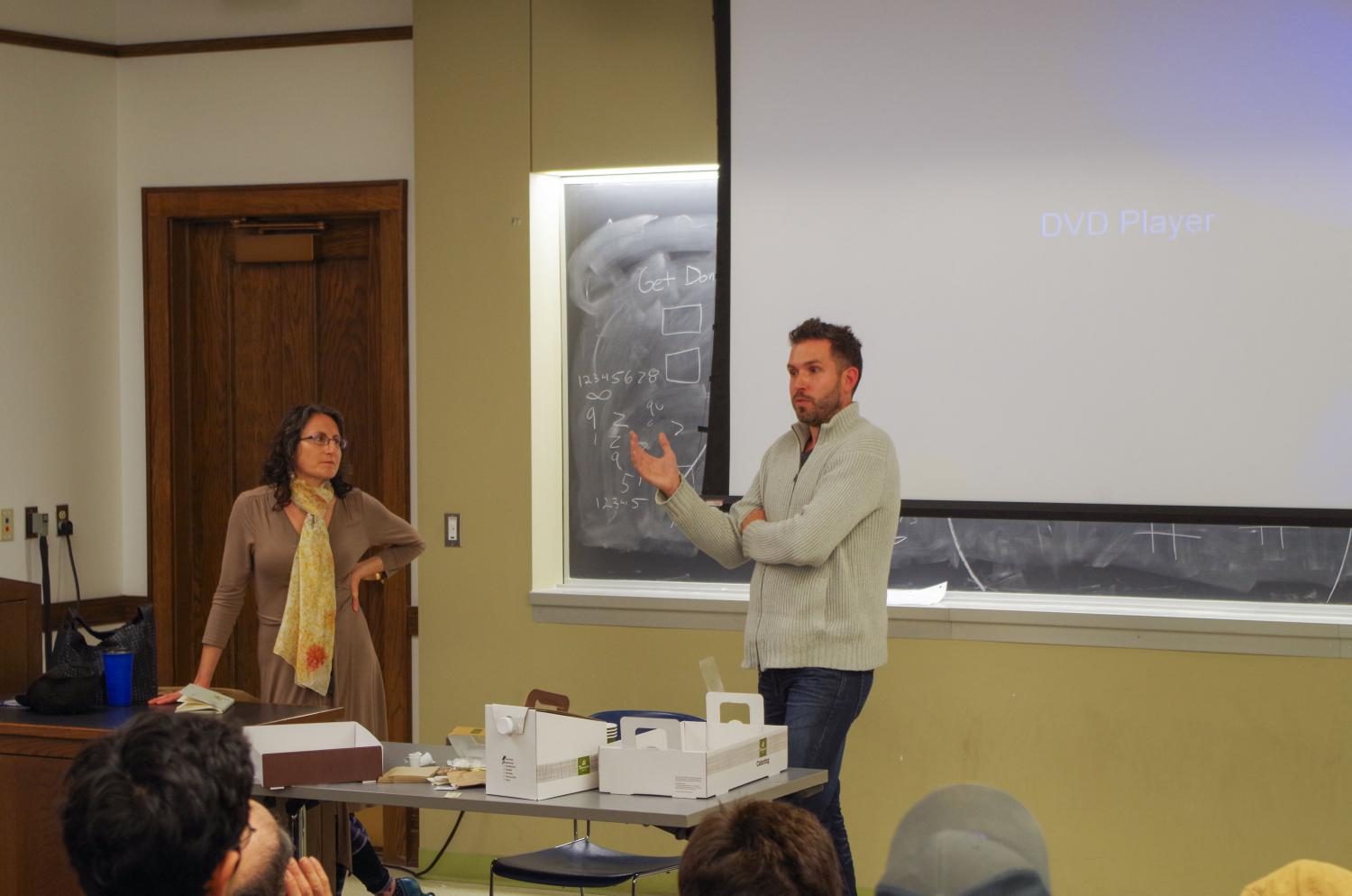‘Finding Oscar,’ film directed by University alumni, documents Guatemalan Crisis
Ryan Suffern discusses his film “Finding Oscar” after its screening in Lincoln Hall on April 4.
May 6, 2017
Through the film “Finding Oscar,” Ryan Suffern captures the art of storytelling while revealing the reality of an overlooked massacre.
Suffern graduated from the University in 1999 with a bachelors degree in English. The path from college graduate to documentarian was anything but linear.
Suffern was the director, producer and writer for the film which was screened on campus this week. The screening took place on Thursday at Lincoln Hall from 6:30 – 8:30 p.m.
He described the mythical pull of Los Angeles for filmmakers and how unimaginable it was for him to end up there.
“While I’m there, I know why I’m there, I never thought I would be there 15 years. I never thought I would be anywhere for 15 years, much less where the Lakers play,” Suffern said. “California was a mythical place and LA was straight out of film television.”
Get The Daily Illini in your inbox!
Suffern got the idea for the film centered on the massacre of Dos Erres when he learned that an assailant of the crime was being tried in a U.S. court. Without much knowledge of the massacre, he and his cinematographer jumped on a plane to the east coast and began making the film that would take two and a half years to produce.
The film “Finding Oscar” follows the story of a human rights lawyer and activist investigating the 1982 Dos Erres massacre largely ignored by the global community and especially so, the Guatemalan government.
Roughly 30 years prior, U.S. involvement in Guatemala led to a coup d’etat of a democratically elected president. The U.S. and other foreign interventions were led by the fear of an increasing communist threat. The involvement continued through the Reagan administration and was a contributing factor for the silencing of the massacre.
The film sheds light on the hypocrisy of U.S. foreign policy at the time and the backlash which caused a wave of revolutions in the region. In Guatemala, the urging of the U.S. government began an effort to target “enemies of the state” who just so happened to be groups of intellectuals.
One of those efforts was traveling to the village of Dos Erres. What started as an unlawful search and seizure became a mass killing of over 300 men, women and children.
“I juxtaposed images of Guatemala’s beautiful landscape with the harrowing storytelling to keep the audience engaged but not in any way lighten the impact of the massacre,” Suffern said. “I thought images of the empty landscape really showed the decimation of a people.”
The full force of the law was never really felt by perpetrators of this crime. Suffern emphasized this through the relentless work of organizers in Guatemala trying to deliver justice for the families and victims of the crime.
Families of the Detained and Disappeared of Guatemala was a primary organization pushing the activism forward; however, even when the global community became aware of the crisis, punishment was far from likely.
“Impunity in Guatemala is as intrinsic in that culture as volcanoes and coffee,” an activist of the organization in the film said.
Oscar Ramirez, the central character of the story, was one of two survivors whose journey after the massacre led him to Boston. His displacement showed just how separated he had become from his culture and his people.
Like many other families of victims, Ramirez’s father, Tranquilino Castaneda, was unaware what happened that night in 1982. Even to the extent that he didn’t know one of his sons survived the massacre.
“I tried to drown my sorrows in alcohol but my sorrows learned to swim,” Castaneda said.
Suffern brought the movie to a close with a hopeful ending. Castaneda is reunited with his son in a tear-jerking airport scene.
“It’s harrowing how often stories like this are left out of history books and media outlets,” said David Noreen, resident of Champaign. “I definitely recommend more people watch this film.”
To keep with the positive ending, even the organization’s activists found a way to see the light amongst all the darkness and terror of this story.
“’Continuar ese trabajo.’ Our predecessors will follow our footsteps and work towards the establishment of justice. That’s all we can hope for,” an organization activist said.
The film is playing at select theaters across the country and will be on Amazon Prime in upcoming months.






